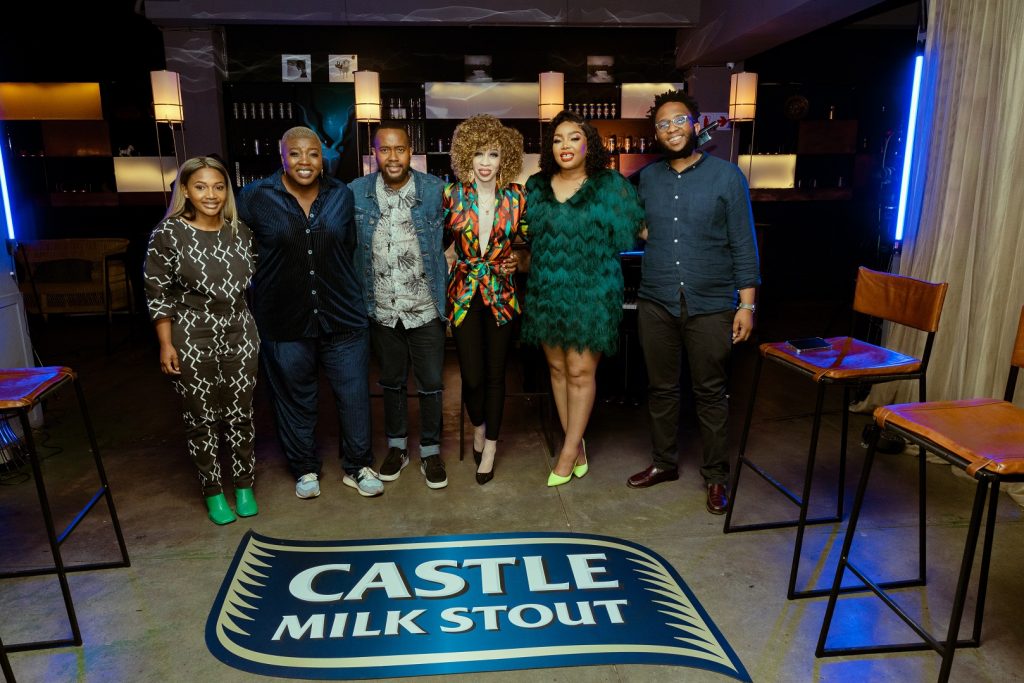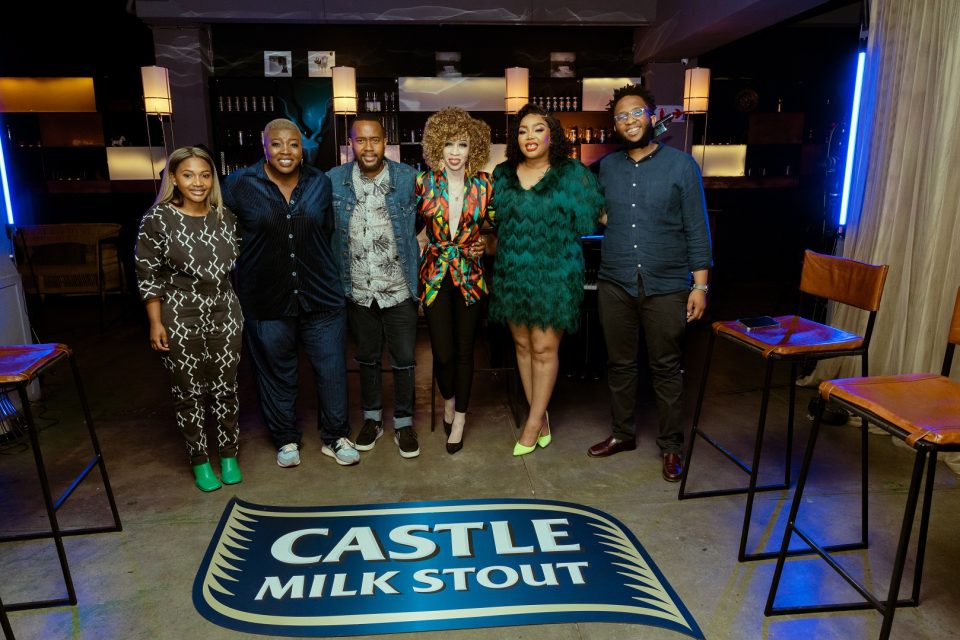
Grabbing the bull by the horns, episode 2 of Black Conversations by Castle Milk Stout, dives right into the controversial and diverse issue of ‘blackness’. Episode two sees polygamist, Musa Mseleku and satirist, Lesego Tlhabi (Coconut Kelz) joining Dineo Ranaka, MaBlerh and Thembisa Nxumalo to discuss the phenomenon of blackness in a modern but particularly, westernised society.
Blackness is defined not by race, but rather a state of mind which is associated with black pride and black love which according to the panellists during episode 3, has been lost.
Episode 2 recap
Episode 2 opens by posing the question of how one navigates not losing their cultural roots in the wake of westernised influences. To which Thembisa answered that, in suburban spaces, African practices are not accommodated. She posed the question; how do we shift this?
In line with Castle Milk Stout’s powerful brand purpose which is to unashamedly “inspire Africans to rediscover their African traditions and values in a modern world”, the brand strongly believes that despite the differing views shared by the diverse group of panellists; conversations such as these are critical to the conservation of African culture and practices.
The panellists expressed that the concept of success runs parallel with the ideologies of a westernised society, however, unlike religion, a concept that was imposed, why is it then difficult to incorporate culture within the westernised society as means of preserving it. The debate begins when the panellists challenge the notion brought forward by Lesego Tlhabi that culture needs to evolve and be accommodative to the modern society to which MaBlerh Cele reiterates the validity of that notion and stated that for culture to evolve, certain people need to die off.
He went on to explain that the very same concept of culture that is desperately trying to be preserved is a combination of traditions and bad habits which were picked up along the way and woven into what we refer to as culture today. However, these practices were never questioned or interrogated and were passed on generationally and in turn pose difficulty to understand or explain certain elements of the culture, therefore making it easier to abandon it.
To truly embrace blackness, there cannot be gatekeepers. The origin of certain customs and traditions need to be imparted but also interrogated in order for newer generations to digest and make it palatable to the world that they live in – however how does one find the balance to ensure that culture or rather blackness is not reduced to its demise?
Challenging the idea of the evolution of culture, Musa Mseleku makes reference to the funeral of the former queen of the United Kingdom, and notes that the proceedings unashamedly embraced their culture and cultural practices without feeling the need to make it palatable or accommodative to the other nations that were present. Which then poses the question of why it is so easy for blackness to be lost or for the foundation of it to be shook?
The panellists wrap up the show by agreeing to the suggestion made by Bab’ Mseleku that the only way blackness can exist in the westernised society is for public figures to use their platforms and influence to drive the narrative of practising and unapologetically embracing blackness. Similarly, to how Africa’s most popular Stout, Castle Milk Stout has cemented its position as an enabler of savouring the richness that lies in embracing your culture and steering conversations that promote social change.
What to expect in Episode three
Episode 3 sees Thembisa Nxumalo and Celeste Ntuli making a return alongside Mablerh Cele; author, economist and activist- Ayabonga Cawe, albinism activist, model and entertainer – Refilwe Modiselle and communication strategist – Rhodé Marshall who come together to discuss the concept of looking black while unpacking what a black look is as well as debunking the stereotypes around it.
As the discussion begins, Rhode Marshall who culturally identifies as coloured, reveals that she self identifies as black and rejects coloured as her race. This notion sparks debate amongst the panellists as according to them; it is suggested that the acceptance of blackness by other races exists solely for superficial gain.
To learn more about the campaign, consumers can use #BlackConversations. For more information and queries, visit www.castlemilkstout.co.za and follow the official Castle Milk Stout social media accounts:
Twitter: @CastleMilkStout
Facebook: Castle Milk Stout
Instagram: @castlemilkstout_sa
YouTube: Castle Milk Stout
INFO SUPPLIED.


